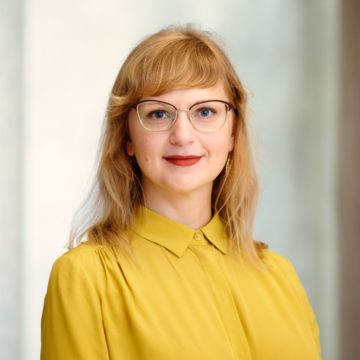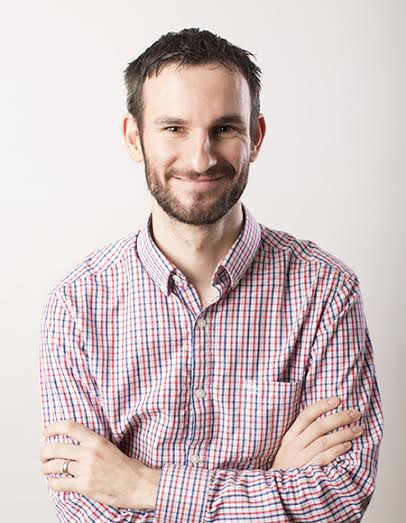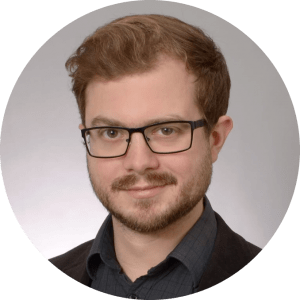For the past couple of weeks, the world has been grappling with the reality of Russia’s invasion of Ukraine and the horrors of war that followed. The United Nations reports over 1,335 civilian casualties (474 killed and 861 injured) since the beginning of the war on Feb. 24. More than 2.1 million people have fled the country in less than two weeks.
On Thursday, March 3, the CSU Department of Political Science hosted a virtual panel on the developing military situation in Ukraine. The event featured presentations from three experts in the fields of international relations and Russian politics, followed by an informative Q&A session. The panel was moderated by Iren Marinova, Ph.D. candidate in political science, and Dominik Stecuła, assistant professor in CSU’s Department of Political Science.
Panelist Takeaways

The first panelist was Larissa Doroshenko, a post-doctoral researcher at Northeastern University with a focus on Russian disinformation campaigns. Doroshenko presented collaborative research examining Russian-led disinformation campaigns around the time of the Russian invasion of Crimea in 2014. By looking at social media platforms like Twitter and the Russian Vkontakte, the study found that disinformation campaigns with differing objectives were targeted towards Russian-speaking and foreign audiences. Doroshenko pointed out that the campaigns directed at Russian speakers emphasized three goals:
- dismissing the losses incurred during the war;
- distorting the facts by promoting narratives of justified fighting against a fascist government committing atrocities against the Russian-speaking population in Ukraine;
- and distracting the audience from the war.
The disinformation campaign whose targets were foreign audiences emphasized distraction and dismay. Specifically, their aim was to shift the perspective towards racial issues like anti-immigrant attitudes in Europe and to exacerbate the partisan divide in the United States and the internal cleavages within the European Union. Additionally, the focus was shifted towards nuclear war threats and the consequences of further expansion of the North Atlantic Treaty Organization (NATO).

The second panelist, Peter Harris, is an associate professor in the Department of Political Science at CSU. Harris offered a sobering perspective on the motives and objectives of Russia’s President Vladimir Putin in his military campaign against Ukraine. Harris discussed three possible explanations for the invasion.
- Putin is driven by ideology and cruelty in his strive to restore Russia’s great power status that it used to enjoy before the collapse of the Soviet Union in 1991.
- Putin seeks a return to previous geographic spheres of influence which for Russia incorporated parts of Eastern Europe.
- Putin wants to shatter the concept of indivisible security for Europe that has made Russia feel insecure since the end of the Cold War and the emergence of the United States as its indisputable winner.
For the past 30 years, the United States has been the guarantor for European security through the continued presence and expansion of NATO on the continent. In this scenario, Harris points out that the only satisfactory condition for Russia would be a scaling back of NATO and a stop to any further expansion to the east.

The third panelist, Andras Toth-Czifra, a senior analyst at Flashpoint Intelligence and a non-resident fellow at the Center for European Policy Analysis (CEPA), focused on the Russian domestic political situation surrounding the invasion of Ukraine and emphasized some of the most influential factors behind Putin’s decision to invade. He argued that Russia had become an isolating autocracy since 2014, a condition further exacerbated by the COVID-19 pandemic. Putin’s isolation in a bunker over the past couple of years has most likely influenced his perception of the winning potential of a military campaign in Ukraine.
He also noted that over two-thirds of the Russian population do not perceive the ongoing crisis in Ukraine as a war due to powerful state-led propaganda. The rest of the population who might wish to oppose the government’s invasion is faced with potentially harsh consequences and punishment. Overall, Toth-Czifra emphasized that keeping the information channels open for the Russian population to see the ongoing conflict in Ukraine and the world’s response to it is fundamental for shifting domestic perceptions that could pressure the leadership to stop the war.
Q&A session
The Q&A session that followed the presentations included several pressing questions about the global response to the war in Ukraine, the future of the international order, the role of disinformation, and the threat of nuclear war. The panelists explained what else the United States and other Western countries could do to help the Ukrainian people without risking further escalation with devastating consequences in a global perspective.
The panelists discussed the role and practicality of sanctions.
Doroshenko argued that sanctions have proven successful in the past on some occasions, but not always. As a result, she expressed doubts that sanctions by themselves would be enough to stop the Russian aggression in the near future.
Harris also expressed pessimism that sanctions would stop the war. While inconvenient, they would not be enough to topple the Putin regime and put an end to the war. Instead, he argued that what might stop the war is Putin achieving his military objectives.
On the other hand, Toth-Czifra remained hopeful that harsh sanctions could bring tangible results. He said that Western countries wanted to deliver a short, sharp blow to the regime, and he believes that sanctions will be especially hard on the middle class, leading to a massive economic collapse. This, in turn, could have ripple effects for Putin’s regime stability.
On the topic of US and NATO involvement in the conflict, all three panelists shared the opinion that NATO would not interfere unless a member country suffered a Russian attack. Direct involvement by NATO in the conflict, or even weapons supply to Ukraine, would most likely be viewed as a direct attack by the government in Moscow, potentially leading to a massive conflict of global dimensions.
All three panelists discussed their perceptions of the implications of the war on the global order and how it might change.
Doroshenko expressed hope that the Putin regime would be toppled in the near future, bringing an end to the war.
Harris focused on the drastic security and defense changes that Europe has been experiencing since the beginning of the war. Specifically, he argued that we might see the European Union become more strategically independent from the United States with hopes that a unified Europe would be able to prevent a future war on its continent. He also expressed doubts about a potential resurgence of the primacy of the liberal international order, dominated by the United States, as India’s and China’s reluctance of standing firm with the West against Russia demonstrates its fragility. Lastly, Harris observed that the international norm against war is currently being solidified, bringing hope that war will remain an unacceptable tool for achieving goals on the global stage.
Toth-Czifra commented on the unprecedented changes occurring in the European Union at the moment, indicating that Russian influence within European governments will most likely wane as it comes under severe scrutiny.
On the question regarding the success rate of Russia’s information war, Doroshenko warned that the Russian propaganda remains strong among the Russian audiences and should not be underestimated. In many cases, Russian propaganda can look like legitimate information whose goal is to exacerbate existing divisions in Russian and foreign societies, making dialogue impossible.
With regards to the potential for nuclear war, the panelists agreed that Putin’s threats should not be dismissed. However, Putin used them to remind the West not to get involved in the conflict. Toth-Czifra pointed out that communication must remain open and continuous in order to avoid miscalculations.